Cashews are popular nuts known for their rich and creamy taste, making them a sought-after ingredient in various culinary applications. Due to their versatility and nutritional benefits, cashews have become a staple ingredient in many cuisines worldwide. As a result, the demand for bulk cashews has increased, leading to the establishment of a thriving wholesale market for these nuts. In this article, we delve into the wholesale market for bulk cashews, exploring its significance, key players, pricing factors, and tips for sourcing high-quality products. 1. Significance of the Wholesale Market for Bulk Cashews – Cost Savings: One of the primary reasons businesses opt for wholesale purchases is the potential cost savings. By buying cashews in bulk, businesses can secure competitive prices, reducing their overall procurement costs. – Supply Chain Efficiency: Wholesalers play a crucial role in the cashew supply chain, connecting farmers and processors with various downstream businesses such as retailers, manufacturers, and distributors. They ensure a steady flow of cashew products, minimizing disruptions and ensuring efficient distribution. 2. Key Players in the Wholesale Cashew Market – Cashew Farmers and Processors: The cashew market begins at the source with farmers who cultivate and harvest cashew nuts. Processors then remove the outer shell, roast the nuts, and prepare them for packaging and distribution. – Wholesale Distributors: These are intermediaries who procure bulk cashews directly from farmers or processors and distribute them to retailers, manufacturers, and other businesses. They typically operate at larger scales, catering to the needs of businesses that require significant quantities of cashews. – Retailers and Manufacturers: These businesses purchase cashews from wholesale distributors to meet the demands of consumers or for use in their products. They may sell cashews directly to consumers or use them as ingredients in various food products. 3. Factors Influencing Wholesale Cashew Prices – Global Cashew Supply and Demand: A major factor affecting cashew prices is the balance between global supply and demand. Factors such as weather conditions, geopolitical situations, and changes in consumer preferences can impact the availability of cashews and consequently influence their prices. – Quality and Grade: Cashew nuts are graded based on their size, wholesomeness, and the presence of defects. Higher quality cashews command higher prices in the wholesale market due to their superior taste and appearance. – Processing and Packaging: The processing methods used, such as roasting or preserving, can impact the price of cashews. Additionally, the packaging plays a role in determining the market value, with attractive, well-sealed packaging often commanding higher prices. 4. Tips for Sourcing High-Quality Bulk Cashews – Research and Due Diligence: Before committing to a wholesale supplier, businesses should conduct thorough research on potential suppliers. They should examine the supplier’s reputation, certifications, quality control processes, and adherence to ethical and sustainable practices. – Sample Testing: Requesting samples from potential suppliers is an effective way to assess the quality of their cashews. Evaluating factors such as taste, texture, appearance, and moisture content can help businesses make informed decisions about their purchases. – Supplier Relationships: Building strong relationships with wholesale cashew suppliers is beneficial in terms of transparency, trust, and reliability. Regular communication fosters a better understanding of business needs and ensures consistent and timely supply.
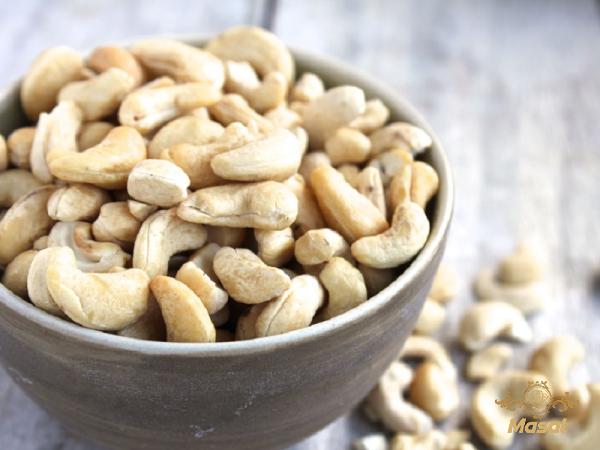
nut
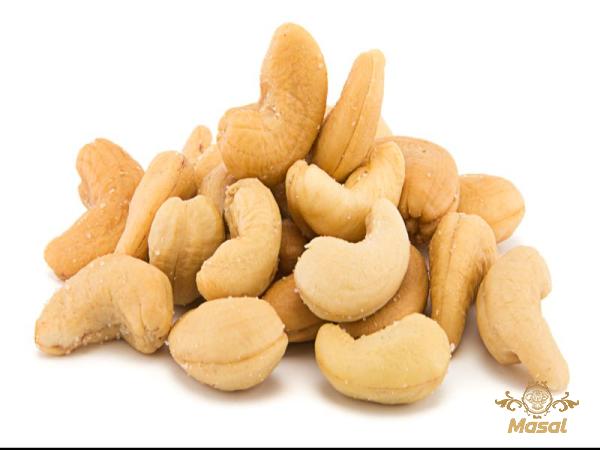 Pricing Negotiations: While focusing on quality is essential, businesses should also consider negotiating competitive prices with suppliers. Exploring different options and comparing quotes from multiple wholesalers can help businesses secure the most favorable pricing terms. Conclusion: The wholesale market for bulk cashews plays a critical role in meeting the demand for this versatile nut. By understanding the significance of wholesale purchases, identifying key market players, recognizing factors influencing prices, and implementing effective sourcing strategies, businesses can navigate the wholesale cashew market successfully. By sourcing high-quality bulk cashews, businesses can not only save costs but also meet the expectations of consumers seeking this nutritious and delicious nut in various forms. I. Understanding the Wholesale Market for Bulk Cashews The wholesale market for bulk cashews plays a significant role in meeting the growing demand for this versatile nut. As businesses and consumers recognize the various health benefits and culinary applications of cashews, the need for a consistent and affordable supply becomes crucial. In this section, we will explore the key aspects of the wholesale market for bulk cashews, including the significance of wholesale purchases, the key players involved, and the factors influencing pricing. A. Significance of Wholesale Purchases One of the primary reasons businesses opt for wholesale purchases is the potential cost savings. By buying cashews in bulk, businesses can secure competitive prices, reducing their overall procurement costs. This is especially beneficial for restaurants, food manufacturers, and retailers who regularly use cashews as ingredients in their products or sell them as standalone items. By procuring cashews wholesale, businesses can take advantage of economies of scale, where the cost per unit decreases as the volume increases. Additionally, wholesale purchases provide businesses with a stable supply of cashews. Wholesalers play a crucial role in the cashew supply chain, connecting farmers and processors with downstream businesses such as retailers, manufacturers, and distributors. By working with wholesalers, businesses can ensure a steady flow of cashew products, minimizing disruptions and guaranteeing efficient distribution. B. Key Players in the Wholesale Cashew Market 1. Cashew Farmers and Processors The cashew market begins at the source with farmers who cultivate and harvest cashew nuts. These farmers operate primarily in countries such as India, Vietnam, Nigeria, and Ivory Coast, which are among the top producers of cashews worldwide. Cashew processing involves removing the outer shell, roasting the nuts, and preparing them for packaging and distribution. Processors play a critical role in maintaining the quality and freshness of cashew products. 2. Wholesale Distributors Wholesale distributors serve as intermediaries who procure bulk cashews directly from farmers or processors and distribute them to retail stores, manufacturers, and other businesses. These distributors typically operate at larger scales, catering to the needs of businesses that require significant quantities of cashews. They provide a convenient and efficient sourcing option, eliminating the need for businesses to individually contact multiple farmers or processors. Wholesale distributors often have established networks and supply chains that enable them to source cashews from various regions globally. This ensures a diverse portfolio of cashew products, allowing businesses to choose based on quality, price, and origin. By working with wholesalers, businesses can also benefit from their expertise in logistics, ensuring timely and reliable delivery of cashew products. 3. Retailers and Manufacturers Retailers and manufacturers are the end-users of bulk cashews procured from wholesale distributors. Retailers, such as grocery stores and specialty food shops, purchase cashews from wholesalers for resale to consumers. Manufacturers, on the other hand, require cashews as ingredients in their products, such as snacks, confectionery, baked goods, and spreads. Both retailers and manufacturers are key players in driving the demand for cashews in various forms, from whole nuts to processed forms like cashew butter or cashew flour.
Pricing Negotiations: While focusing on quality is essential, businesses should also consider negotiating competitive prices with suppliers. Exploring different options and comparing quotes from multiple wholesalers can help businesses secure the most favorable pricing terms. Conclusion: The wholesale market for bulk cashews plays a critical role in meeting the demand for this versatile nut. By understanding the significance of wholesale purchases, identifying key market players, recognizing factors influencing prices, and implementing effective sourcing strategies, businesses can navigate the wholesale cashew market successfully. By sourcing high-quality bulk cashews, businesses can not only save costs but also meet the expectations of consumers seeking this nutritious and delicious nut in various forms. I. Understanding the Wholesale Market for Bulk Cashews The wholesale market for bulk cashews plays a significant role in meeting the growing demand for this versatile nut. As businesses and consumers recognize the various health benefits and culinary applications of cashews, the need for a consistent and affordable supply becomes crucial. In this section, we will explore the key aspects of the wholesale market for bulk cashews, including the significance of wholesale purchases, the key players involved, and the factors influencing pricing. A. Significance of Wholesale Purchases One of the primary reasons businesses opt for wholesale purchases is the potential cost savings. By buying cashews in bulk, businesses can secure competitive prices, reducing their overall procurement costs. This is especially beneficial for restaurants, food manufacturers, and retailers who regularly use cashews as ingredients in their products or sell them as standalone items. By procuring cashews wholesale, businesses can take advantage of economies of scale, where the cost per unit decreases as the volume increases. Additionally, wholesale purchases provide businesses with a stable supply of cashews. Wholesalers play a crucial role in the cashew supply chain, connecting farmers and processors with downstream businesses such as retailers, manufacturers, and distributors. By working with wholesalers, businesses can ensure a steady flow of cashew products, minimizing disruptions and guaranteeing efficient distribution. B. Key Players in the Wholesale Cashew Market 1. Cashew Farmers and Processors The cashew market begins at the source with farmers who cultivate and harvest cashew nuts. These farmers operate primarily in countries such as India, Vietnam, Nigeria, and Ivory Coast, which are among the top producers of cashews worldwide. Cashew processing involves removing the outer shell, roasting the nuts, and preparing them for packaging and distribution. Processors play a critical role in maintaining the quality and freshness of cashew products. 2. Wholesale Distributors Wholesale distributors serve as intermediaries who procure bulk cashews directly from farmers or processors and distribute them to retail stores, manufacturers, and other businesses. These distributors typically operate at larger scales, catering to the needs of businesses that require significant quantities of cashews. They provide a convenient and efficient sourcing option, eliminating the need for businesses to individually contact multiple farmers or processors. Wholesale distributors often have established networks and supply chains that enable them to source cashews from various regions globally. This ensures a diverse portfolio of cashew products, allowing businesses to choose based on quality, price, and origin. By working with wholesalers, businesses can also benefit from their expertise in logistics, ensuring timely and reliable delivery of cashew products. 3. Retailers and Manufacturers Retailers and manufacturers are the end-users of bulk cashews procured from wholesale distributors. Retailers, such as grocery stores and specialty food shops, purchase cashews from wholesalers for resale to consumers. Manufacturers, on the other hand, require cashews as ingredients in their products, such as snacks, confectionery, baked goods, and spreads. Both retailers and manufacturers are key players in driving the demand for cashews in various forms, from whole nuts to processed forms like cashew butter or cashew flour.
Specifications of nut
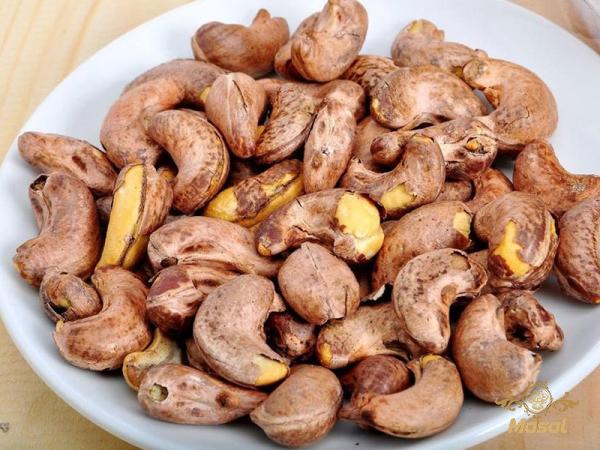 II. Factors Influencing Wholesale Cashew Prices The wholesale price of cashews is influenced by several factors that impact the overall supply and demand dynamics of the market. Understanding these factors can help businesses anticipate price fluctuations and make informed purchasing decisions. Here are some key factors that influence wholesale cashew prices: A. Global Cashew Supply and Demand The balance between global cashew supply and demand is a significant factor affecting cashew prices. Changes in agricultural practices, weather conditions, and geopolitical situations can impact the availability of cashews in different regions. For example, adverse weather conditions, such as droughts or cyclones, can affect cashew crop yields, leading to a decrease in supply and a corresponding increase in prices. Similarly, changes in consumer preferences and dietary trends can influence the demand for cashews and subsequently affect their prices. B. Quality and Grade Cashew nuts are graded based on their size, wholesomeness, and the presence of defects. Higher-quality cashews command higher prices in the wholesale market due to their superior taste, texture, and appearance. Different cashew grades may have specific applications in industries, with larger and more uniform nuts often preferred for retail packaging and presentation. The grading process involves sorting cashews based on factors such as size, color, and shape. The highest grade, called “white whole,” consists of large, unbroken cashews with a pale ivory color. Lower grades may include splits, pieces, and broken cashews, which are typically used in food manufacturing, baking, or as ingredients in processed products. The quality and grade of cashews play a significant role in pricing, with premium grades attracting higher wholesale costs. C. Processing and Packaging The processing methods used can also impact the price of cashews. Manufacturers may invest in additional processing techniques, such as roasting or preserving, to enhance the flavor, texture, or shelf life of cashews. These additional processing steps may incur additional costs, contributing to higher wholesale prices. Packaging also contributes to the market value of cashews. Attractive, well-sealed packaging not only helps preserve the quality of the nuts but also enhances their market presentation. Unique packaging designs, sustainable materials, and convenient resealable features can contribute to premium pricing in the wholesale market. D. Currency Fluctuations and Trade Policies Currency fluctuations and trade policies can affect the prices of imported cashews. Many countries rely on cashew imports to meet domestic demand, leading to exposure to exchange rate volatility. Changes in currency values can impact the landed cost of imported cashews, which may be passed on to businesses in the form of higher wholesale prices. Additionally, trade policies such as tariffs or import restrictions can impact cashew prices by altering the supply and demand dynamics in specific regions.
II. Factors Influencing Wholesale Cashew Prices The wholesale price of cashews is influenced by several factors that impact the overall supply and demand dynamics of the market. Understanding these factors can help businesses anticipate price fluctuations and make informed purchasing decisions. Here are some key factors that influence wholesale cashew prices: A. Global Cashew Supply and Demand The balance between global cashew supply and demand is a significant factor affecting cashew prices. Changes in agricultural practices, weather conditions, and geopolitical situations can impact the availability of cashews in different regions. For example, adverse weather conditions, such as droughts or cyclones, can affect cashew crop yields, leading to a decrease in supply and a corresponding increase in prices. Similarly, changes in consumer preferences and dietary trends can influence the demand for cashews and subsequently affect their prices. B. Quality and Grade Cashew nuts are graded based on their size, wholesomeness, and the presence of defects. Higher-quality cashews command higher prices in the wholesale market due to their superior taste, texture, and appearance. Different cashew grades may have specific applications in industries, with larger and more uniform nuts often preferred for retail packaging and presentation. The grading process involves sorting cashews based on factors such as size, color, and shape. The highest grade, called “white whole,” consists of large, unbroken cashews with a pale ivory color. Lower grades may include splits, pieces, and broken cashews, which are typically used in food manufacturing, baking, or as ingredients in processed products. The quality and grade of cashews play a significant role in pricing, with premium grades attracting higher wholesale costs. C. Processing and Packaging The processing methods used can also impact the price of cashews. Manufacturers may invest in additional processing techniques, such as roasting or preserving, to enhance the flavor, texture, or shelf life of cashews. These additional processing steps may incur additional costs, contributing to higher wholesale prices. Packaging also contributes to the market value of cashews. Attractive, well-sealed packaging not only helps preserve the quality of the nuts but also enhances their market presentation. Unique packaging designs, sustainable materials, and convenient resealable features can contribute to premium pricing in the wholesale market. D. Currency Fluctuations and Trade Policies Currency fluctuations and trade policies can affect the prices of imported cashews. Many countries rely on cashew imports to meet domestic demand, leading to exposure to exchange rate volatility. Changes in currency values can impact the landed cost of imported cashews, which may be passed on to businesses in the form of higher wholesale prices. Additionally, trade policies such as tariffs or import restrictions can impact cashew prices by altering the supply and demand dynamics in specific regions.
buy nut
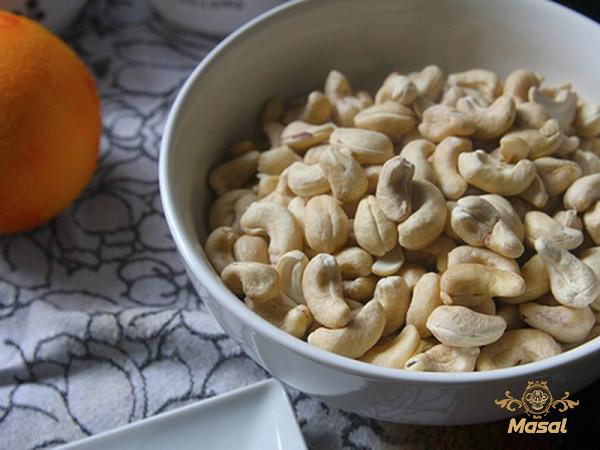 III. Tips for Sourcing High-Quality Bulk Cashews To ensure the procurement of high-quality bulk cashews, businesses should implement effective sourcing strategies and establish relationships with reliable suppliers. Here are some tips to consider when sourcing cashews in wholesale quantities: A. Research and Due Diligence Before committing to a wholesale supplier, businesses should conduct thorough research on potential suppliers. It is essential to examine the supplier’s reputation, certifications, quality control processes, and adherence to ethical and sustainable practices. By verifying the supplier’s credentials and understanding their commitment to quality, businesses can make more informed decisions about whom to partner with for their cashew procurement needs. B. Sample Testing Requesting samples from potential suppliers is an effective way to assess the quality of their cashews. Evaluating factors such as taste, texture, appearance, and moisture content can provide critical insights into the overall quality of the cashews. By conducting sample testing, businesses can ensure that the cashews meet their specific requirements and are of consistent quality throughout the bulk order. C. Supplier Relationships Building strong relationships with wholesale cashew suppliers is beneficial in terms of transparency, trust, and reliability. Regular communication with suppliers fosters a better understanding of business needs and ensures consistent and timely supply. Investing time and effort in nurturing relationships with suppliers can result in long-term partnerships and access to a stable and quality supply of bulk cashews. D. Pricing Negotiations While focusing on quality is essential, businesses should also consider negotiating competitive prices with suppliers. Exploring different options and comparing quotes from multiple wholesalers can help businesses secure the most favorable pricing terms. Additionally, long-term contracts or bulk purchase commitments can provide businesses with negotiating leverage, leading to cost savings in the long run. Conclusion: The wholesale market for bulk cashews caters to the increasing demand for this versatile nut. By understanding the significance of wholesale purchases, identifying the key players involved, recognizing the factors influencing pricing, and implementing effective sourcing strategies, businesses can navigate the wholesale cashew market successfully. Sourcing high-quality bulk cashews not only helps businesses save costs but also ensures that they meet the expectations of consumers seeking this nutritious and flavorful nut in various culinary delights.
III. Tips for Sourcing High-Quality Bulk Cashews To ensure the procurement of high-quality bulk cashews, businesses should implement effective sourcing strategies and establish relationships with reliable suppliers. Here are some tips to consider when sourcing cashews in wholesale quantities: A. Research and Due Diligence Before committing to a wholesale supplier, businesses should conduct thorough research on potential suppliers. It is essential to examine the supplier’s reputation, certifications, quality control processes, and adherence to ethical and sustainable practices. By verifying the supplier’s credentials and understanding their commitment to quality, businesses can make more informed decisions about whom to partner with for their cashew procurement needs. B. Sample Testing Requesting samples from potential suppliers is an effective way to assess the quality of their cashews. Evaluating factors such as taste, texture, appearance, and moisture content can provide critical insights into the overall quality of the cashews. By conducting sample testing, businesses can ensure that the cashews meet their specific requirements and are of consistent quality throughout the bulk order. C. Supplier Relationships Building strong relationships with wholesale cashew suppliers is beneficial in terms of transparency, trust, and reliability. Regular communication with suppliers fosters a better understanding of business needs and ensures consistent and timely supply. Investing time and effort in nurturing relationships with suppliers can result in long-term partnerships and access to a stable and quality supply of bulk cashews. D. Pricing Negotiations While focusing on quality is essential, businesses should also consider negotiating competitive prices with suppliers. Exploring different options and comparing quotes from multiple wholesalers can help businesses secure the most favorable pricing terms. Additionally, long-term contracts or bulk purchase commitments can provide businesses with negotiating leverage, leading to cost savings in the long run. Conclusion: The wholesale market for bulk cashews caters to the increasing demand for this versatile nut. By understanding the significance of wholesale purchases, identifying the key players involved, recognizing the factors influencing pricing, and implementing effective sourcing strategies, businesses can navigate the wholesale cashew market successfully. Sourcing high-quality bulk cashews not only helps businesses save costs but also ensures that they meet the expectations of consumers seeking this nutritious and flavorful nut in various culinary delights.



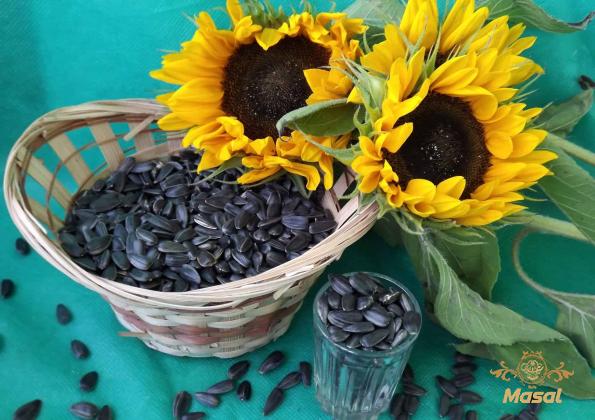

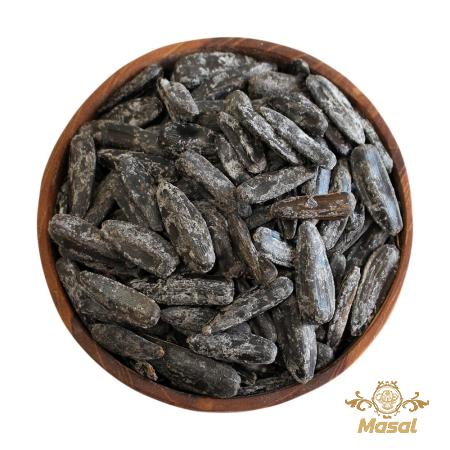
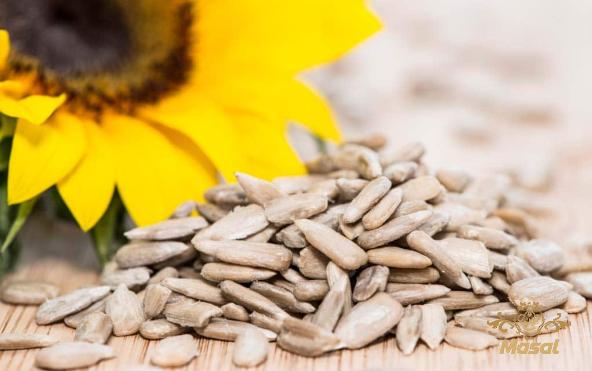
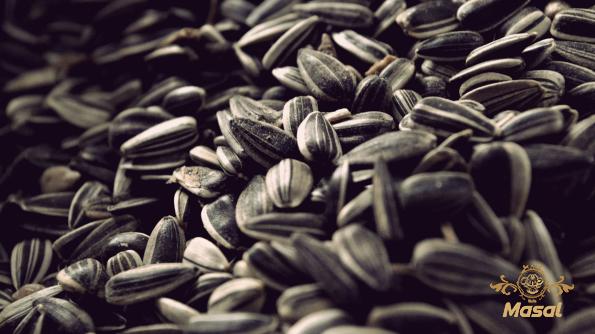


Your comment submitted.